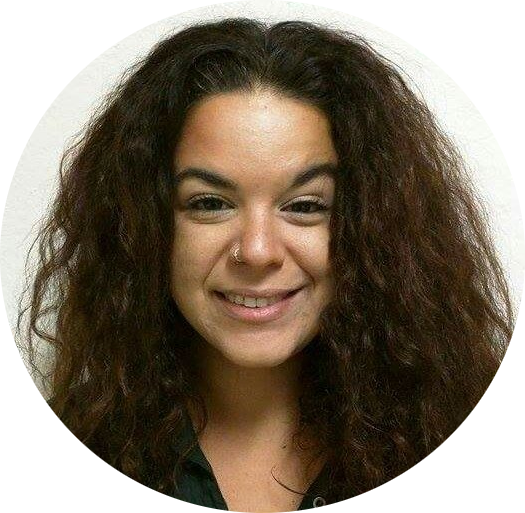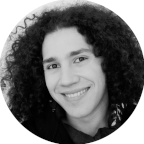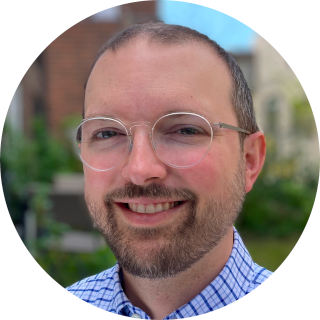
We are honored to have served the Haskell Foundation along with these former members of the Board.

Ph.D., co-founder of Zurich Haskell Meetup and longtime co-organiser of ZuriHac. Currently Head of Software Development at PwC Switzerland. On a mission to making Haskell a viable choice with little personal risk for corporate decision makers.
Ways of Working, Technical Agenda

Chris has been interested in Haskell since the early reports and wrote the original Alex package in the 1990s. In the late nineties Chris taught Haskell to undergraduates in UCC (Cork) and in the noughties used Haskell tools to develop key aspects of the ARMv7 architecture. Since 2013 Chris has been chief Engineer for IRIS Connect where he has overseen the development of the new IRIS Connect video platform which makes extensive use of Haskell in the back end.
Ways of Working, Technical Agenda

Edward is currently off founding a stealth startup. He also sits on the board of the Topos Institute, promoting category theory in industry as a tool for exchanging ideas. Outside of Haskell he’s worked on graphics and special effects, telecommunications, finance, linguistics, and once helped Taiwan point a big RADAR at China. Edward found Haskell in 2006 and at the time mistakenly believed all Haskellers were thoroughly fluent in category theory, so he started blogging to this imaginary audience. A few years later his work on lenses provided a more practical impetus for more folks to learn some of these ideas, closing the circle. He currently maintains well over a hundred Haskell libraries covering a rather wide swathe of topics and isn’t entirely sure how he backed himself into that position.
Ways of Working, Technical Agenda

Emily is an advisor and engineer focused on language and systems development at Kadena. She helped found the Haskell Foundation as the first chair of its working group, and on its executive team as CTO. Before Haskell, she worked in finance on statistical models and technical audit on Wall St., and moonlighting as a mathematician. At some point, she decided Category Theory was a good idea to marry with programming, and found the Haskell community was already on it, opting to get her hands dirty on the Haskell.org committee, the Core Libraries Committee, and maintaining/authoring too many packages. She has since published a paper on the mathematics of optics, and, as a coping mechanism, is now working on applied subjects to regain her ability to interact with humans.

Evie has 15 years of software development, the last five being focused on FP and Haskell. She is passionate about teaching people FP and Haskell, about computer science and formalism, and about formal verification. She is currently working as a senior software engineer at Hasura.

Graham is Professor of Computer Science at the University of Nottingham, where he leads the Functional Programming Lab. He’s been involved in Haskell research and education for many years, and has served as an editor of the Journal of Functional Programming, vice-chair of the ACM Special Interest Group on Programming Languages, steering committee chair of the International Conference on Functional Programming, and program chair of the Haskell Symposium. The second edition of his book “Programming in Haskell” was published by Cambridge University Press in 2016.

Creator and maintainer of 80+ open source packages, creator of the Yesod framework, creator of Stack and Stackage, prolific blogger and communicator within Haskell. He is the acting VP of FP Complete, and provided advice and worked with the HF working group early on.
Ways of Working, Technical Agenda

Moritz has a background in mathematics but ended up in mobile application development. His interest in reliability, simplicity, and low-power single-board computers/mobile devices drew him to contribute to GHC’s Codegen backend. His contributions to GHC expanded over time to include the NCG and LLVM backends, the in-memory linker, and continuous integration infrastructure. A keen interest in solid systems engineering, and cross-compilation further motivated his GHC and tools contributions, culminating in haskell.nix, a nix-based cross-compilation solution.
Currently, Moritz is the Head of Platform Engineering at IOG. In this role, he leads the compiler, developer experience, and infrastructure teams. His work centers on enhancing the Haskell development experience, with a primary emphasis on stability and reliability.

Research assistant professor at IMDEA software institute in Madrid, Spain. She brought us Liquid Haskell, among many papers written helping to progress Haskell, while serving on 19 committees and co-charing seven venues over her tenure in the field.
Ways of Working, Technical Agenda

Executive director heading an application development team at Standard Chartered bank, managing a team of 20 people. He co-founded Chordify, and is a member of the IFIP Working Group 2.1 on Algorithmic Languages and Calculi. Before Standard Chartered, he was a postdoc research assistant at Oxford University, and before that, a PhD at Utrecht University.
Ways of Working, Technical Agenda

Managing partner and Haskell developer for Flipstone Technology, who worked with us early on in HF’s lifetime and brought both donations as well as put in his own time to help everyone out.
Ways of Working, Technical Agenda

Hécate has played a huge part in a complete overhaul of the community docs over the past year, and brings to the Foundation their will to change things for the better.
Ways of Working, Technical Agenda

Community builder, who loves bringing people together to learn and share ideas, skills and experience.
Ways of Working, Technical Agenda
Thank you to the former members of the Executive Team, who helped shape the Haskell Foundation.

Andrew Boardman brings a varied background as a serial entrepreneur, manager, teacher, consultant, and financial professional. He started professional programming in high school, writing text editor software for electronic bulletin board systems. Since then he has been the tech lead for the Windows build lab, lead developer for Windows Live Messenger, worked on desktop publishing software at Quark, and co-founded five startups, and much more.
Andrew was drawn to Haskell in 2015 as the best solution to solve the truly difficult problems in computer science. Most recently he was a Haskell developer and engineering manager at SimSpace Corp., working on software for cybersecurity readiness training and testing. He is extremely excited about serving the community, and looks forward to working with everyone to address pain points and build on the language’s strengths.

David Thrane Christiansen has a background in software development and academic research. In academia, he worked on the boundary between advanced functional programming languages and metaprogramming, and implemented much of the interactive programming environment for Idris 1. In industry, he has worked on domain-specific languages for the financial sector at Deon Digital and tools for software verification and security at Galois. Throughout, he has worked as much as possible on making languages and ideas accessible, fun, and easy to get started with. Together with Daniel P. Friedman, David is a co-author of The Little Typer, an introductory book on dependent type theory.
In addition to Haskell, David has significant experience with Racket, Kotlin, Idris, Python, and PHP. He is very interested in seeing what the Haskell community can learn from other communities of practice, and facilitating cross-pollination of ideas.

Emily Pillmore got her start on Wall St. as a consultant and financial professional, reverse engineering statistical models and providing technical audit. She started her programming career as a late bloomer at the University of Utah, learning Java and Perl. Ultimately deciding to pursue mathematics (Topology and Geometry), she found a way to combine these two loves via functional programming, and quickly changed careers to focus on Scala and Haskell in 2016. Since then, she has served as a senior engineer for Disney Streaming (working on Disney+), and as a core team member of Kadena.
Emily has since developed a proclivity for OSS and community contributions, authoring or maintaining many well-known Haskell packages, contributing to Core Libraries and Haskell.org as a board member, and serving the Haskell Foundation as its first Working Group Chair. She looks forward to seeing Haskell flourish, and building some great tech that will make everyone’s Haskell experience that much better.
HF's Interim Board served during the launch phase and managed the establishment of the first full board in early 2021, as well as interviewing and selecting the foundation Executive Director and Chief Technology Officer.

Chris has been interested in Haskell since the early reports and wrote the original Alex package in the 1990s. In the late nineties Chris taught Haskell to undergraduates in UCC (Cork) and in the noughties used Haskell tools to develop key aspects of the ARMv7 architecture. Since 2013 Chris has been chief Engineer for IRIS Connect where he has overseen the development of the new IRIS Connect video platform which makes extensive use of Haskell in the back end.

Edward is currently off founding a stealth startup. He also sits on the board of the Topos Institute, promoting category theory in industry as a tool for exchanging ideas. Outside of Haskell he’s worked on graphics and special effects, telecommunications, finance, linguistics, and once helped Taiwan point a big RADAR at China. Edward found Haskell in 2006 and at the time mistakenly believed all Haskellers were thoroughly fluent in category theory, so he started blogging to this imaginary audience. A few years later his work on lenses provided a more practical impetus for more folks to learn some of these ideas, closing the circle. He currently maintains well over a hundred Haskell libraries covering a rather wide swathe of topics and isn’t entirely sure how he backed himself into that position.

Gabriele is Professor of Software Technology in the Department of Information and Computing Sciences. Her research focuses on how programming languages can be used to improve the quality of software. Conventional software testing is very important, but can’t guarantee the absence of errors. She is addressing this problem in her research on developing and using programming languages that are based on mathematical theory, so we can prove that a program will work in all scenarios. Call it ‘correctness by construction’. The real world significance is obvious: it saves a lot of time and it eliminates errors, so which company wouldn’t want it?

Jasper encountered Haskell just as he started university, and was completely smitten by the language. He went on to spent most of his student days working on various open source Haskell projects. After graduating, he worked for several companies using Haskell in production. He then started to contribute to the community, chairing the Haskell.org foundation and growing ZuriHac into a world-class event. He currently works in the cloud & software security field.

Lennart has been using and implementing Haskell in various roles for the last 30 years. He currently works for Epic Games.

Simon Marlow is a Software Engineer at Facebook in London. He has previously worked on Haxl, a Haskell-based domain-specific language that is used by the teams fighting abuse on Facebook, and he is currently working on Glean, a system to store and query facts about source code at scale. Simon is a co-author of the Glasgow Haskell Compiler, author of the book “Parallel and Concurrent Programming in Haskell”, and has a string of research publications in functional programming, language design, compilers, and language implementation.

Simon is an Engineering Fellow at Epic Games. Until 2022, he was a researcher at Microsoft Research in Cambridge, England, where he started in Sept 1998. He’s also an Honorary Professor of the Computing Science Department at Glasgow University, where he was a professor during 1990-1998. Simon is interested in the design, implementation, and application of lazy functional languages. He was one of the original designers of Haskell, and much of his work is focused around the Glasgow Haskell Compiler and its ramifications. Simon is also chair of Computing at School, the group at the epicentre of the reform of the national curriculum for Computing in England. Computer science is now a foundational subject, alongside maths and natural science, that every child learns from primary school onwards.

Stephanie Weirich is the ENIAC President’s Distinguished Professor of Computer and Information Science at the University of Pennsylvania. Her research areas include functional programming, type systems, machine-assisted theorem proving and dependent types. She and her students have made significant contributions to the design of the type system of the Glasgow Haskell Compiler. Dr. Weirich was recognized by the SIGPLAN Milner Young Researcher award (2016), a Microsoft Outstanding collaborator award, and a most influential ICFP paper award (awarded in 2016, for 2006). She has served as the general chair of ICFP 2020 and as the program chair of POPL 2018, ICFP 2010, and the 2009 Haskell Symposium.
